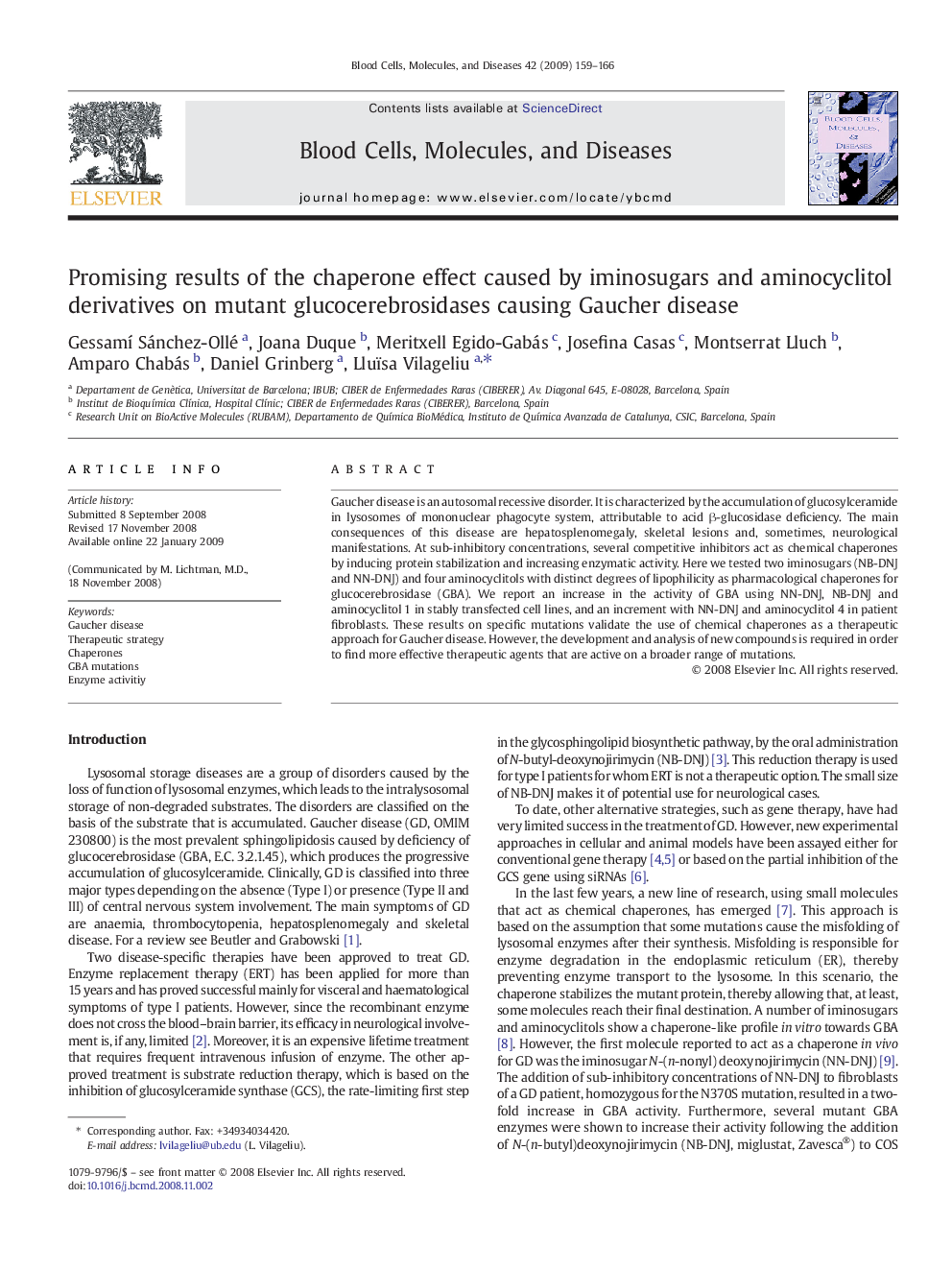| Article ID | Journal | Published Year | Pages | File Type |
|---|---|---|---|---|
| 5913599 | Blood Cells, Molecules, and Diseases | 2009 | 8 Pages |
Abstract
Gaucher disease is an autosomal recessive disorder. It is characterized by the accumulation of glucosylceramide in lysosomes of mononuclear phagocyte system, attributable to acid β-glucosidase deficiency. The main consequences of this disease are hepatosplenomegaly, skeletal lesions and, sometimes, neurological manifestations. At sub-inhibitory concentrations, several competitive inhibitors act as chemical chaperones by inducing protein stabilization and increasing enzymatic activity. Here we tested two iminosugars (NB-DNJ and NN-DNJ) and four aminocyclitols with distinct degrees of lipophilicity as pharmacological chaperones for glucocerebrosidase (GBA). We report an increase in the activity of GBA using NN-DNJ, NB-DNJ and aminocyclitol 1 in stably transfected cell lines, and an increment with NN-DNJ and aminocyclitol 4 in patient fibroblasts. These results on specific mutations validate the use of chemical chaperones as a therapeutic approach for Gaucher disease. However, the development and analysis of new compounds is required in order to find more effective therapeutic agents that are active on a broader range of mutations.
Related Topics
Life Sciences
Biochemistry, Genetics and Molecular Biology
Molecular Biology
Authors
Gessamà Sánchez-Ollé, Joana Duque, Meritxell Egido-Gabás, Josefina Casas, Montserrat Lluch, Amparo Chabás, Daniel Grinberg, Lluïsa Vilageliu,
